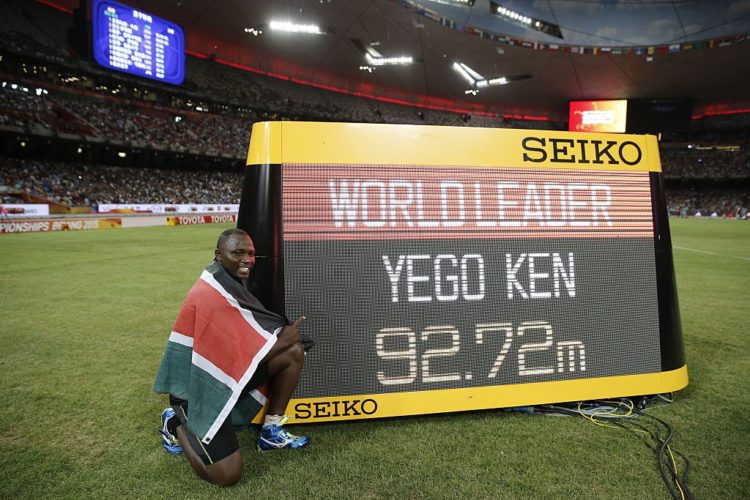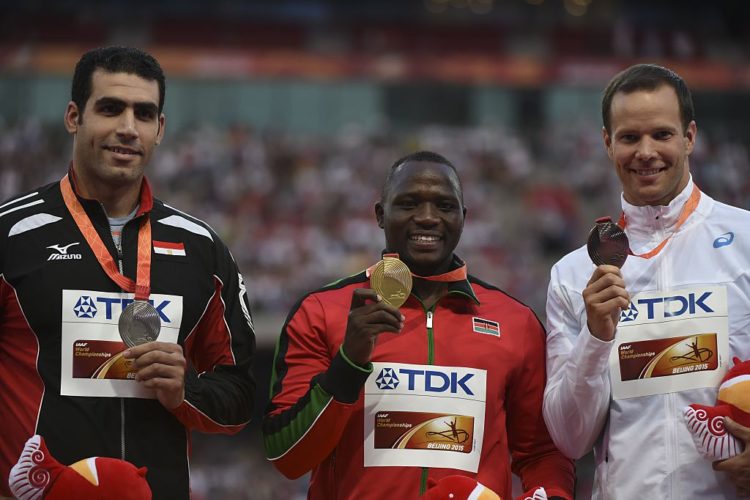Kenya and athletics have long been synonymous, but at Rio 2016, the long shadow of doping has threatened to overshadow the medal aspirations of Kenya’s athletes. Julius Yego, the Javelin world champion spoke exclusively to TRUE Africa.
Yego had to go to internet cafes in his village to watch javelin.
At London 2012, Yego reached the final of the javelin throw, finishing 12th with a personal record of 77.15 meters. With it, he scaled great heights. Back at home, Yego had to go to internet cafes in his village to watch javelin on YouTube and learn from his idols Jan Zelezny and Andreas Thorkildsen, because he didn’t have a coach.
‘It was great to be in the final and a good experience, but this time I want to go a step further,’ said Yego, whose steady improvement yielded a 92.72 meters, an African record, at the 2015 World Championships in Beijing. Yet he has come under scrutiny from some Kenyan media in recent months for his lacklustre form.
In Rio, Yego wants gold.
‘Not every season can be exceptional,’ said Yego. ‘2015 was just that. That’s sport, but I have had a good season. You can’t have that consistency in sports all the time.’
In Rio, Yego wants gold. His main rival is Keshorn Walcott from Trinidad and Tobago. ‘That’s clear, he is the Olympic champion. But it is not about one rival per se. The 12 athletes in the final will all be competitors.’

Ihab Abdelrahman from Egypt would have been another of Yego’s main challengers, but he failed a doping test, in controversial circumstances, just before the start of the Olympic Games. ‘At, first I couldn’t believe it,’ said Yego. ‘I was shocked. We have to wait and see.’
Kenya is also dealing with doping, not, presumably, of a systematic state-sponsored scope, but with deficiencies that destabilise the credibility of its athletes. Since London 2012, 40 Kenyan track and field athletes, predominantly lower level athletes, have failed doping tests. The IAAF also suspended four senior officials of AK, Athletics Kenya, over allegations of manipulating the anti-doping process.
‘If you want to kill doping, you need punishment.’
On August 5, WADA, the World Anti-Doping Agency, removed Kenya from the list of ‘non-compliant’ countries, but, in Rio, Kenyan official Michael Rotich and coach John Anzrah have been sent home: the former is facing doping bribery charges in Kenya, the latter was allegedly discovered taking a doping test in place of an athlete at Rio 2016 by doping officials.

‘Kenya has doping problems,’ admitted Yego. ‘We can’t deny that. But the authorities are doing their best. It was the same story before the World Championships, but it is our job to complete clean and to win clean.’
‘If you want to kill doping, you need punishment,’ said Yego of the IOC’s decision to not impose a blanket ban on Russia. ‘Athletes that have doped, need to be punished.’
On Thursday, Yego will seek to realise his Olympic dream. His secret? ‘Do you mind if I tell you after the Olympic Games?’ said Yego. ‘Haha. No, it’s my hard work.’
